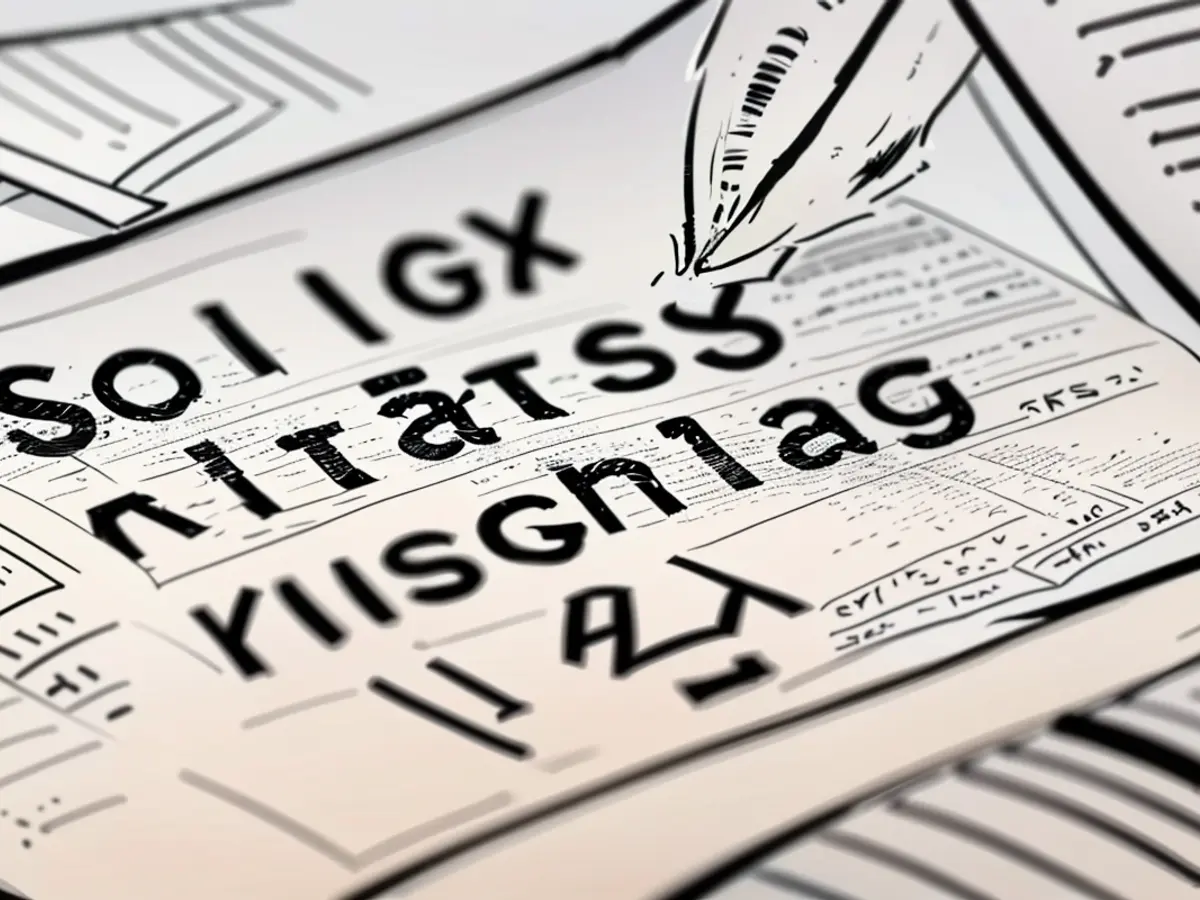Is there a potential termination of the solidarity levy?
November 12th might be a crucial day for the solidarity levy. On that date, the Federal Constitutional Court will determine if this tax infringes upon the Constitution. Eliminating it could be a rational move.
The solidarity levy was first introduced in 1991 for a temporary period of one year. Since 1995, the tax office has continuously collected this additional levy, and the funds go to the federal government. The intention behind this levy was to finance German reunification. However, this reason no longer exists.
In 2021, the former government abolished the solidarity levy for approximately 90% of taxpayers. Only wealthy individuals and corporations are currently subject to this levy, either fully or partially. For individual taxpayers, it equates to 5.5% of their income tax. For corporations, the tax office also collects 5.5% of their corporation tax. Currently, the federal government collects around 12 billion euros annually through the solidarity levy. However, there's doubt surrounding this supplementary levy.
On November 12, the Federal Constitutional Court will hold an oral hearing. At this event, the highest judges will decide if the solidarity levy violates the Constitution. Proponents of this idea argue that this supplementary levy has long since ceased to be used for the reconstruction of the new federal states. The Solidarity Pact expired in 2020. This means the legal basis for the solidarity levy no longer exists, as legal experts like the former President of the Federal Constitutional Court, Hans-Jürgen Papier, have pointed out.
The FDP parliamentary group filed a lawsuit against the solidarity levy when it was abolished for around 90% of taxpayers. Interestingly, the liberal plaintiffs also included Katja Hessel and Florian Toncar. At the time, the FDP was still in opposition. Today, Hessel and Toncar serve as parliamentary state secretaries in the Federal Ministry of Finance.
Threat to the federal budget
If the judges in Karlsruhe rule that the solidarity levy violates the Constitution, it will create another 12 billion euro gap in the federal budget for the coming year. If the Federal Constitutional Court also determines that the solidarity levy has been unconstitutional retroactively, Federal Finance Minister Christian Lindner could face a significant financial shortage.
Although the Federal Fiscal Court (BFH) ruled in early 2023 that the solidarity levy for the years 2020 and 2021 was lawful, it also suggested that this supplementary levy may not be permanent. The federal government must rely on taxes for permanent financial needs. However, the solidarity levy is a supplementary levy. This indicates that the solidarity levy may soon be abolished, either in November or in the near future. It is already not practical today.
For wealthy individuals, this levy essentially functions as an additional wealth tax. Essentially, this means a redistribution from the rich to the poor. Therefore, redistribution policy aspects are crucial here.
Dr. Michael Bormann is a tax expert and has been a founding partner of the law firm bdp Bormann Demant & Partner since 1992. His areas of expertise include not only taxes but also financing consultancy and restructuring and crisis management for medium-sized companies.
However, for companies that also pay 5.5% of their corporate tax as a solidarity levy to the tax office, this makes German companies relatively heavily taxed compared to their international competitors. This negatively impacts their competitiveness. Moreover, GmbHs, which are predominantly medium-sized and small businesses, also have to pay the solidarity levy. These businesses are already grappling with high energy and personnel costs. In this case, relief is urgently required. Abolishing the solidarity levy would contribute to this.
The Federal Constitutional Court's decision on November 12th could potentially challenge the constitutionality of the basic law governing the solidarity levy, as some argue that its original purpose of financing German reunification no longer exists. The Solidarity Pact expired in 2020, and legal experts like former President Hans-Jürgen Papier have raised concerns about its continued collection.
If the Federal Constitutional Court determines that the solidarity levy violates the Constitution, it could create a significant financial gap of 12 billion euros in the federal budget for the coming year, placing a burden on Federal Finance Minister Christian Lindner.








